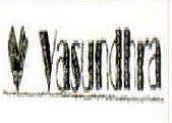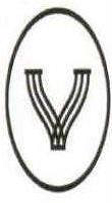| Article Section | |||||||||||
EXCLUSIVE RIGHT CANNOT BE GRANTED FOR COMMON NAME UNDER TRADE MARKS ACT, 1999 |
|||||||||||
|
|||||||||||
EXCLUSIVE RIGHT CANNOT BE GRANTED FOR COMMON NAME UNDER TRADE MARKS ACT, 1999 |
|||||||||||
|
|||||||||||
Deceptive similarity The Trade Marks Act, 1999 (‘Act’ for short) gives protection to the owner of the registered trade mark from other not using the same. If there is a contravention in this regard the registered trade mark owner may file a suit before Court for prohibitory injunction against the other party. An action for passing-off on the basis of unregistered trade mark generally for deciding the question of deceptive similarity, the Supreme Court in CADILA HEALTH CARE LTD. VERSUS CADILA PHARMACEUTICALS LTD. - 2001 (3) TMI 928 - SUPREME COURT held that the following factors are to be considered-
Common name Under the Act common words can be registered but cannot claim exclusive right. Section 17(2)(b) of the Act provides that when a trade mark contain any matter which is common to the trade or otherwise of a non-distinctive character the registration shall not confer any exclusive right in the matter forming only a part of the whole of the trade mark so registered. In VASUNDHRA JEWELLERS PVT. LTD. VERSUS KIRAT VINODBHAI JADVANI & ANR. - 2022 (11) TMI 213 - DELHI HIGH COURT, the appellant adopted the mark ‘VASUNDHRA/VASUNDHRA JEWELLERS to commence the business of ‘jewellery in precious metal and gems’. The appellant has been using this mark extensively, continuously and uninterruptedly. The said marks have acquired immense goodwill and reputation. The appellant applied for the device mark,
claiming use of the mark since 01.01.1999. The said mark is registered and valid up till 23.05.2023. On 19.12.2017 the appellant applied for the registration of device mark.
The above device mark is registered and it is valid up to 19.12.2017. Again on 22.05.2019 the appellant applied for the registration of device mark.
The said device mark is registered and valid up to 22.05.2029. Thereafter the appellant applied for registration of various other trademarks including the word marks ‘VASUNDHRA JEWELLERS’ and ‘VASUNDHRA JEWELLERS PRIVATE LIMITED’. The same was opposed at the Trade mark Registry. The appellant claimed that it has the exclusive right to use the VASUNDHRA Trademarks, including the name ‘Vasundhra’. It has spent a considerable amount of money and effort to establish its brand identity through the promotion and advertising of the said marks. Since the launch of its brand, its sales have increased from Rs.19,80,812/- in the year 1999-2000 to Rs.79,71,49,118/- for the period 2021 till 04.03.2021. The appellant came across the publication of the respondent No. 1’s mark ‘VASUNDHRA FASHION’ under Class 2 for the goods textiles and textile fabrics during April 2022.
According to the appellant the domain name of respondent no.1 is also identical to its domain name. On 24.05.2022, the appellant filed a suit under Sections 29, 27(2) and 135 of the Act, inter alia, seeking permanent injunction against respondent no. 1 from infringement, passing off, its relevant trademarks. It is the prior and registered proprietor of the VASUNDHRA Trademarks, registered for goods falling under Class 14 and thus, the impugned marks used by respondent no.1, dealing in allied goods, is deceptively similar to its marks. The appellant contended that the action of the respondent amounts to infringement of VADUNDHRA trademarks. Since respondent no.1 has applied for registration of its mark under Class 25, it is estopped from contending that the said mark is not entitled to protection. The respondent No. 1 contended that the class of goods dealt by the appellant is different than the class of goods, which are dealt by it. Its goods are supplied to different class of purchasers and 80% of its business is derived from Gujarat and the balance 20% is through online sales. The appellant has no presence and thus, there is no scope for any confusion being caused by use of the mark ‘VASUNDHRA’. The respondent 1 has employed around eighty people for operations of four warehouses, two manufacturing units and seven offline stores, whereas the appellant, admittedly, operates only one shop at Pitampura in Delhi and thus, it cannot claim pan-India reputation of the mark. The Respondent no. 1 further contended that it has acquired immense reputation and goodwill in its mark and the statistics relating to the period 31.05.2021 to 22.05.2022 prove that through Flipkart alone, the products advertised by it were viewed 60.14 crore times by the target consumers and 1.82 crore clicks were made on its product listings leading to 1.89 lakh numbers of units of its products being purchased, which resulted in gross sales of Rs.8.66 crores on Flipkart alone. Further, its gross sales between the periods of December, 2020 to April 2022 were quantified at Rs.13,30,84,966.80/-. The respondent No. 1 contended that word ‘Vasundhra’ is a common name in India and various companies have registered marks containing the said word under various classes and thus, the appellant cannot claim exclusive right to use the said term. The respondent No. 1 claimed protection under Section 34 of the Act as it uses its device mark for goods falling under Classes 24 and 25, and admittedly, the appellant has not preferred any application for registration of its goods under the abovementioned. The Single Judge found that the appellant was unable to make out a prima facie case for grant of prohibitory injunction against respondent no. 1. ‘VASUNDHRA’ is a common name in India and an exclusive right to use the same cannot be granted to the plaintiff. The goods of the plaintiff and the defendant no.1, though cognate, are distinct. The plaintiff has not even contended that it has plans of trade progression, that is, to expand its business to other goods including those of the defendant no.1. The defendant no.1 also has developed suitable goodwill of the mark in its favor, as is evident from its claim of having a gross sale of Rs. 13.30 crore approximately between the periods of December, 2020 to April 2022. Merely because the plaintiff deals in jewellery items, which by themselves are more costly thereby resulting in a higher turnover for the plaintiff, will not give a better right to the plaintiff over an otherwise a common name in India. The Supreme Court concurred with the view that a proprietor of a trade mark cannot extend the area of protection granted to the mark. The appellant does not enjoy the monopoly of the word ‘Vasundhra’. The Supreme Court observed that the word ‘Vasundhra’ is a generic word and it is brought on record that there are several registered trademarks, which include the word ‘Vasundhra’. Although it is possible for a proprietor to claim exclusive right in respect of the word ‘Vasundhra’, however, for that, it would be necessary to establish on account of extensive use, the said common word has been identified exclusively with the business of the proprietor and no other. The observations in the impugned judgment that ‘VASUNDHRA’ is a common name in India and an exclusive right to use the same cannot be granted to the plaintiff” has to be read in the aforesaid context. The Supreme Court did not find any merit in the appeal and upheld the judgment of Single Judge
By: Mr.áM. GOVINDARAJAN - November 7, 2022
|
|||||||||||
| |
|||||||||||






